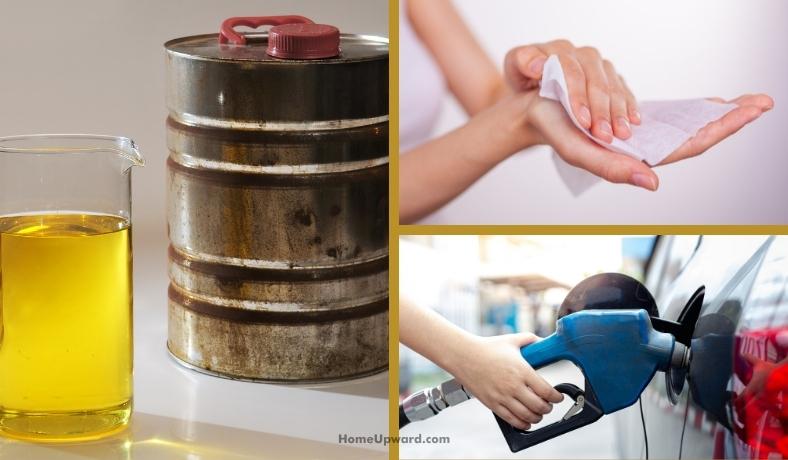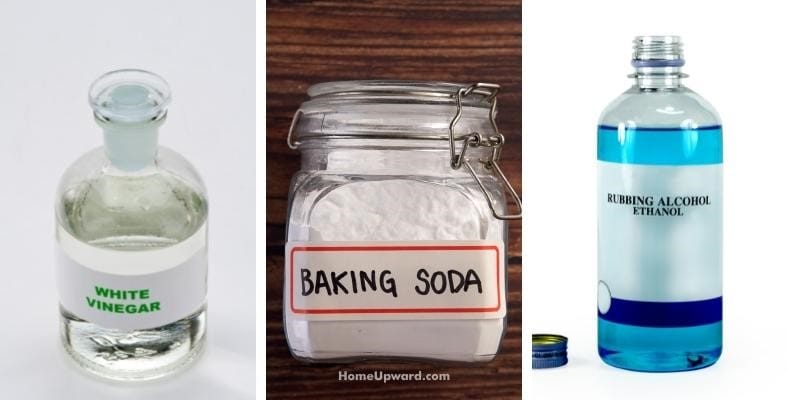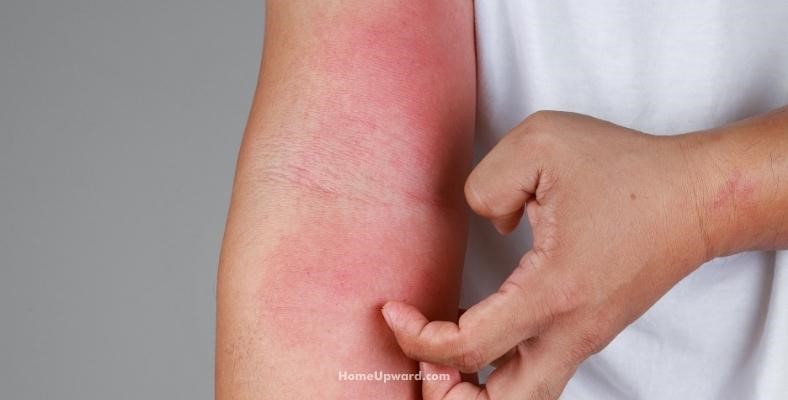At some point almost everyone will get gasoline on their hands. For some people like mechanics or people who work with gas-powered motors it’s not unusual.
Fortunately there are several effective, inexpensive, and non-toxic ways to deal with this problem we’ll cover here.
Contents
How Do You Remove Gasoline Smell from Your Hands?
Dish Detergent and Salt Solution
Dish detergent (like Dawn dish soap) has the ability to break down the chemical bonds of gasoline. Salt has the ability to remove odors.
- Coat your hands with Dawn.
- Sprinkle them with table salt and rub.
After rinsing with water your hands should will not only be odor-free but soft, too!
White Vinegar
White vinegar may be the powerhouse of natural cleaning products. It’s non-toxic, eco-friendly, and probably in your pantry. As an acidic substance, it works by breaking down the bonds that hold the gasoline together.
A five-minute soak followed by a water rinse (and a bit of hand soap) should readily remove the gas odor from your hands.
Lemon Juice or Citrus Juice
The citric acid in lemon juice makes it a true ally in the battle against gas fumes on your hands. Just squeeze juice from a lemon and mix it with an equal part of cold water.
Apply this mixture to your hands for one minute. Then rinse your hands with water and repeat (if necessary). A word of caution: If you have cuts on your hands you may want to skip this particular method.
Baking Soda Paste
Baking soda isn’t just for refrigerator odors. It can also be used as a paste application (one part baking soda to three parts water) to remove gas odor.
Just rub the mixture into your hands for a few minutes then rinse with water. It won’t hurt your skin so you can repeat the process if needed.
Vanilla Extract
Mom probably never told you about this one: You can make a cleaning solution by adding drops of vanilla extract into half a cup of water.
Note: Be careful not to add too many drops; this may make it difficult to tell if the gas odor is actually gone.
Just rub, wait for a few minutes, then wash your hands with soap and water. As a side bonus, using vanilla extract will not only remove the gas smell from your hands, it will leave them smelling delicious as well.
Rubbing Alcohol
Rubbing alcohol (preferably 80-90% strength) has the capacity to neutralize offensive smells. Hand sanitizer can also be used, too!
It’s simple: Apply liberally, rub, and repeat until the alcohol disappears. This will eliminate dirt, grease, and gas odors from your hands.
Hydrogen Peroxide
Hydrogen peroxide is multi-purpose. It’s used as a mouth rinse and a mild antiseptic. It can also be used to remove gas odors from your skin.
A simple solution (one part hydrogen peroxide to three parts water) can be used as a hand soak, but be sure that you don’t soak your hands for more than a few minutes. Hydrogen peroxide can potentially harm skin when used for too long.
Mechanic’s Hand Soap or Wash
Mechanics face a huge risk of gasoline exposure. It’s all in a day’s work. Gasoline spills will find their way onto both clothing and skin.
If you’re a mechanic, there’s a good chance you have mechanic soap at work (as well as a heavy-duty hand soap at home). If you don’t, it may be time to invest.
Can Gasoline Smell and Gasoline Vapors Be Harmful?
Gasoline is made up of more than 150 chemicals, including methane and benzene. These chemicals, called hydrocarbons, are the reason why gasoline is poisonous.
The number of chemicals present in gasoline is dependent on many factors including how and when the gasoline was made. Gasoline is highly flammable and can form explosive mixtures when mixed with air.
The dangers of gasoline and gasoline vapors
If you’ve ever been to a gas station you probably know the smell of spilled gasoline. It’s even likely you’ve spilled a little on your own hands if you’ve filled your tank yourself.
If you’ve ever operated a lawnmower or hung out with a gas attendant you know what I’m talking about. You’ll be able to smell this gas before you see it.
Most of the gas you inhale is exhaled, unchanged. However, some of the chemicals in gasoline can enter your body and travel through your liver and kidneys.
Here they are changed into other chemicals. Most will leave the body as urine. Others will not leave your body as quickly.
Additional ways gasoline is dangerous
High concentrations of gasoline, when inhaled, can damage your lungs. Very high concentrations of gas fumes in poorly-ventilated areas can pose a risk of asphyxiation.
Inhaling this gasoline vapor for short periods of time can also cause detrimental effects to your nervous system. These effects range from headaches and dizziness to the inability to breathe and even a coma!
In general, the health effects due to acute exposure are systematic and can be serious.
Inhaling high levels of gasoline can ultimately lead to gasoline poisoning. Prolonged, direct exposure to these gasoline fumes (such as running your car in an enclosed garage) can cause carbon monoxide poisoning which is lethal.
What Happens If You Spill Gasoline on Your Skin?
If you spill gasoline on your hands you may be concerned. There are a few factors that come into play. It’s safe to say that it’s better to react sooner than later.
Does Gasoline Penetrate Skin?
The hydrocarbons in gasoline are poorly (and relatively slowly) absorbed by intact skin. Exposure to liquid gasoline effectively removes the grease from your skin.
This irritates your skin and can cause dermatitis. First- and second-degree burns may occur if your skin is in contact with liquid gasoline for a prolonged time.
Is It Bad to Wash Your Hands With Gasoline?
Some people use gasoline or kerosene to remove oily materials from their skin. This practice will remove the grease from skin, also known as defatting.
The use of these solvents to clean your skin is a bad idea. For example, one study done on lab mice indicated that using kerosene to help clean their skin actually aided the passing of carcinogens through their skin and into the body.
What Happens If You Get Gasoline on Your Clothes?
You may think that gasoline-stained clothes are a lost cause. Don’t act too quickly. Some tried and true methods can save that clothing.
Wash Your Clothes With Hot Water
The first thing to note is that because gasoline is flammable, gas-soaked clothes should not be washed- they should be thrown away, right away.
One way to remove gasoline stains from clothing is the old-fashioned way- in the washing machine. You can begin by putting some dish soap directly on the stain and allowing it to absorb.
Remember to wash the gas-stained clothing by itself. Next, run this load using the hot cycle. If you allow the clothes to air dry, the gas smell should be completely gone.
Hang Clothing Outside in Fresh Air for a Day
Fresh air has magic powers. Before the advent of dryers, it was the ONLY way to dry clothing. This simple, time-honored practice may still be the secret to deodorizing your clothes.
Try it. Hang the gas-stained clothing outside for 24 hours of air drying. You may wish to try this before resorting to other methods.
Soak in Vinegar
If air drying doesn’t quite do the trick, there’s another alternative – a vinegar soak. This means pouring enough vinegar to soak the clothing into a sink or tub.
Allow the clothes to soak for a few hours and then hang them outside for air drying.
Does Water Wash Away Gasoline?
No, gasoline itself doesn’t usually dissolve easily in water. To put it simply, gas and water don’t mix.
For effective gasoline removal water should be used with stain removal agents like the ones mentioned above.






